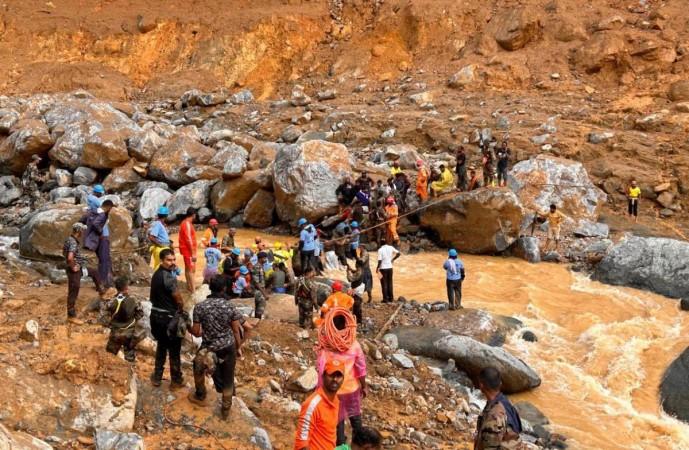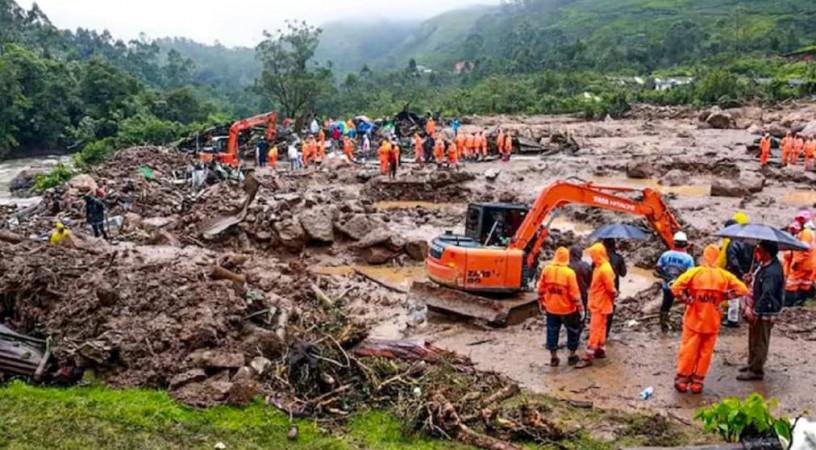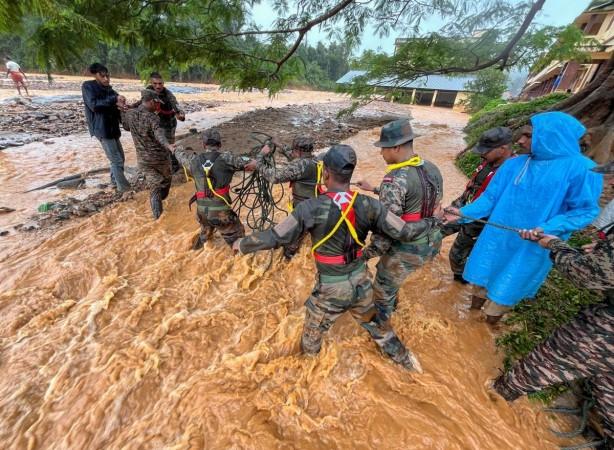
Low income, vulnerable populations will continue to drown and capsize in landslides, floods and storms even as the perpetrators sit safe on high grounds. This is clear with the present disasters accompanying landslides in Wayanad, Kerala. With 262 confirmed deaths, as per authorities, and many more suspected dead, it was a disaster that could have been averted if the authorities had paid heed to the warnings.
The landslides occurred mainly in Mundakkai and Chooralmala regions of south Wayanad, where the ranges are contiguous and stretch from Nilambur to Tamil Nadu. Mundakkai region is among one of the highly sensitive areas identified by the Madhav Gadgil report that had way back in 2011 demarked 75 percent of the Western Ghats as ecologically sensitive areas. The latest landslides have been termed as 'man-made' by Gadgil.
Despite the district disaster management plan also identifying more than a dozen areas in the region as landslide prone, construction has been rampant with many illegal projects coming up. Many environmentalists have identified this as the prime cause of the recent landslides.
"The resort mafia, construction mafia, quarry mafia, timber mafia are having the time of their lives. This is a disaster caused by them, mainly by tourism lobby, real estate and quarry owners," says N Badusha, of Prakruthi Samrakshana Samithi, Wayanad. PSS is actively involved in activism in the region, using advocacy and non-violent agitations to conserve the environment.

"This is a highly sensitive stretch, and hence the camel hump hills have strict regulation that no such activities can be conducted according to the report issued by an expert committee put together by state disaster management in 2020. Despite the report, several resorts have been constructed in the area and roads laid. Further, the government has proposed to build a tunnel road around these areas where the disaster has taken place. If this continues, we can expect bigger disasters," he noted, adding that the present disaster was literally invited.
Echoing the same sentiments are that of DFO Dhanesh Kumar who has been closely associated with Wayanad. The rock foundation of the camel hump range of mountains is continuous and a shock can affect the whole range, he says.

"The mountains are very fragile and also origin of rivers like Kabini and Chaliyar. We need to protect these mountains," says Dhanesh, according to whom the present landslide resulted from large scale excavation carried out, mainly for tourism with construction of resorts, hotels. During his official stints in the region as RFO and Wildlife Warden and DFO, his actions have worked as effective deterrents against the quarry lobby. Bud sadly, things have weakened.
In 2011, around 75 percent of 1,29,037 sq kms of the Western Ghats spanning six states were demarked by the Madhav Gadgil report as ecologically sensitive areas. But states like Kerala and Karnataka found it 'restrictive' and a second panel headed by Kasturirangan brought down the ESA to 50 percent. Even that was met with objection and the latest notification has shrunk the sensitive area to 37 percent!

The strong lobbies behind these objections are well recognised but with political backing, remain protected. Meanwhile, the poor and disadvantaged will continue to bear the brunt. Rainstorms will get stronger and intense with climate change. According to the UNDP, globally, the 10 percent of households with the highest per capita emissions contribute 34–45 percent of global household greenhouse gas emissions, while the bottom 50 percent contributes 13–15 percent. Ironically, it is the latter who suffers the most. Between 2010 and 2020, human mortality from floods, droughts, and storms was 15 times higher in highly vulnerable regions.
We live in times where money rules.

















